Publications
Articles, publications, books, tools and multimedia features from the U.S. Institute of Peace provide the latest news, analysis, research findings, practitioner guides and reports, all related to the conflict zones and issues that are at the center of the Institute’s work to prevent and reduce violent conflict.
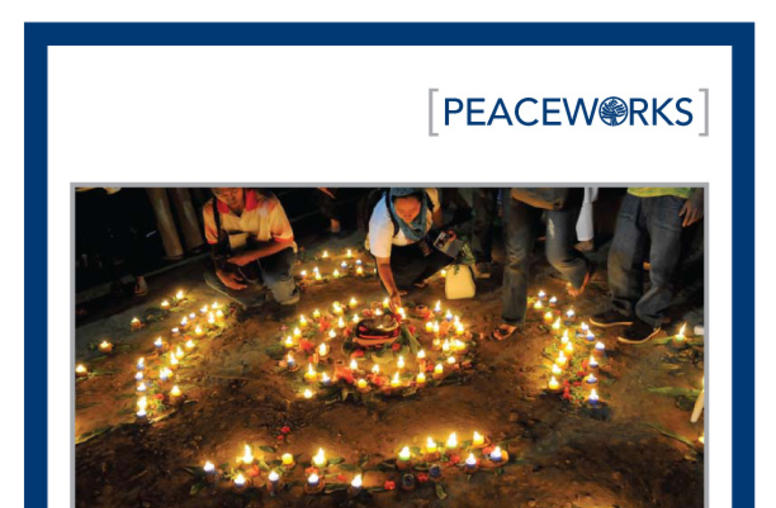
Women in Religious Peacebuilding
To recognize and understand better the role of women in religious peacebuilding, the United States Institute of Peace, the World Faiths Development Dialogue (WFDD), and Georgetown University’s Berkley Center for Religion, Peace, and World Affairs launched an initiative with a symposium on July 7 and 8, 2010, at Georgetown University. This report highlights the initiative’s main findings to date.
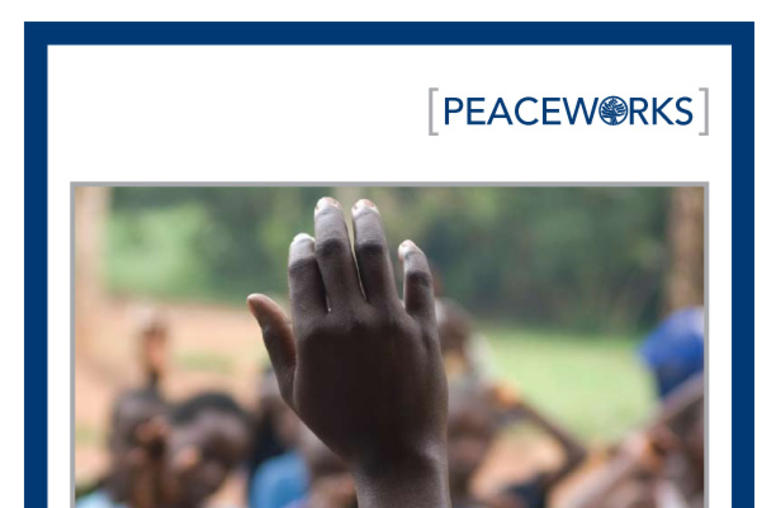
Making Peace after Genocide
A former seven-term member of Congress and presidential special envoy during the Clinton administration, Howard Wolpe led the U.S. delegation to the Arusha and Lusaka peace talks to end the civil wars in Burundi and the Democratic Republic of the Congo. This report distills the author’s experience as a presidential special envoy to Africa’s Great Lakes region from 1996 to 2001, and as the director of a Burundi leadership training initiative from 2003 to 2009.
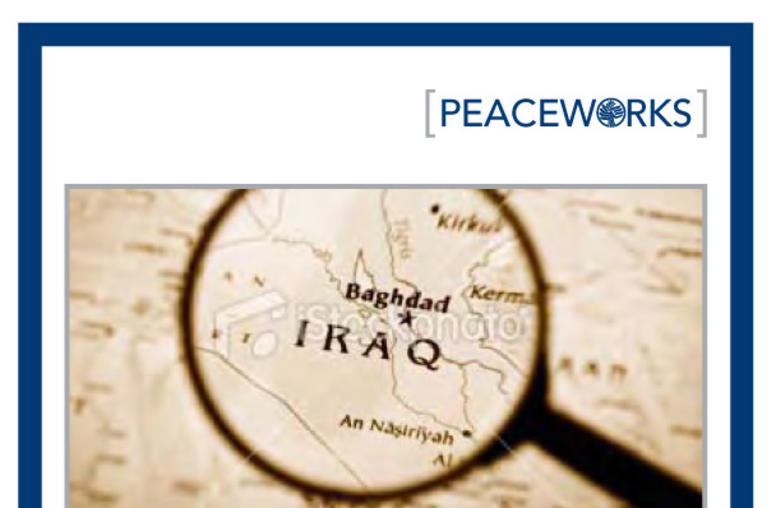
Iraq's Disputed Territories
According to U.S. government officials, the greatest potential threat to Iraq’s stability is not extremist groups but the prospect of Arab-Kurdish conflict over oil-rich Kirkuk and other disputed territories. This report attempts to demystify and disaggregate the often poorly defined disputed territories by drawing upon two data sets: the political preferences expressed in these territories during Iraq’s three postconstitution elections and archival records detailing these areas’ respective a...
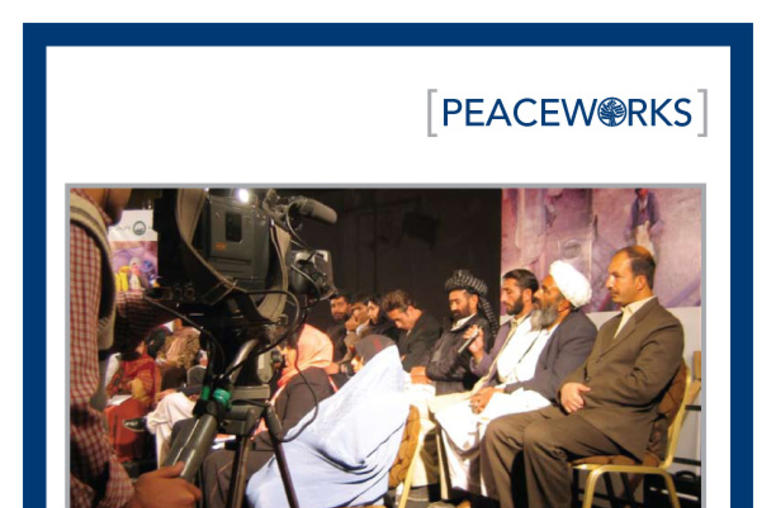
Afghanistan Media Assessment
This report was commissioned by the United States Institute of Peace’s Center of Innovation for Media, Conflict, and Peacebuilding. It assesses Afghanistan’s media sector through a new tool developed by USIP, which combines elements of a traditional media assessment with conflict analysis.
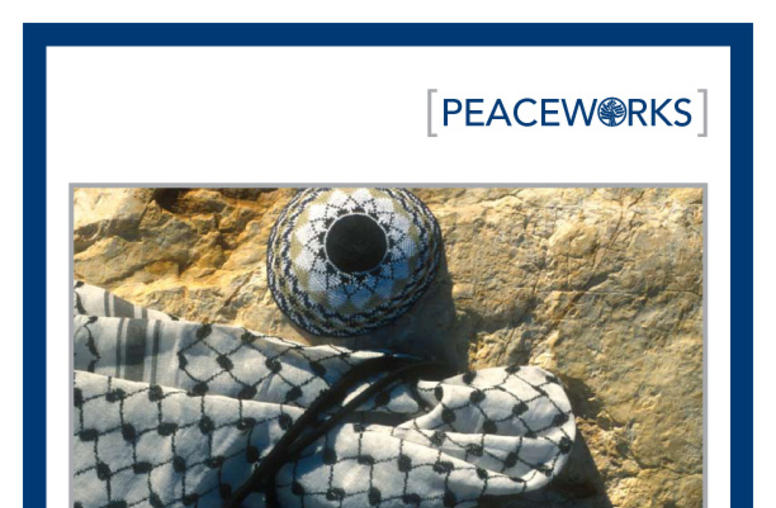
Arab-Jewish Relations in Israel
Israel is and remains a deeply divided society of some 5.6 million Jews and some 1.2 million Palestinian-Arab citizens. Sammy Smooha, a 2009-10 Jennings Randolph Senior Fellow at the U.S. Institute of Peace addresses attitudes and the divisions surrounding the Arab-Israeli conflict.
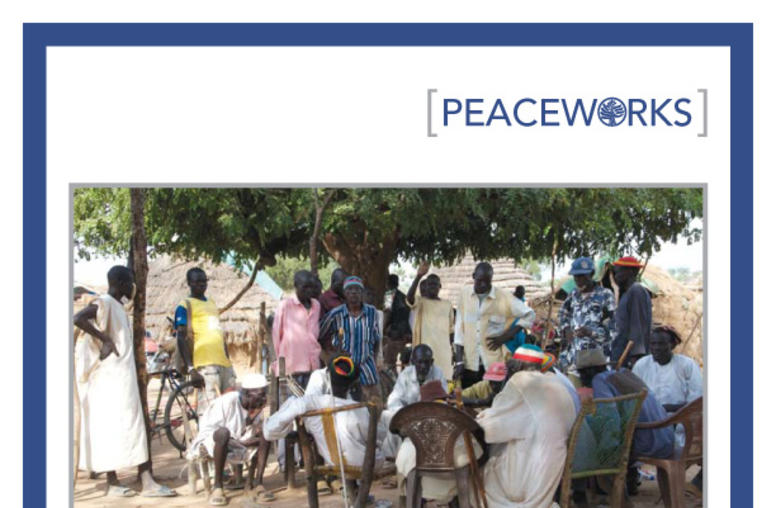
Local Justice in Southern Sudan
This study is the result of collaboration between the United States Institute of Peace and the Rift Valley Institute (RVI), leveraging the former’s broader work on customary justice and legal pluralism and the latter’s extensive knowledge of the region. This report empirically analyzes the current dynamics of justice at the local level, identifying priorities for reform according to the expressed needs and perceptions of local litigants.
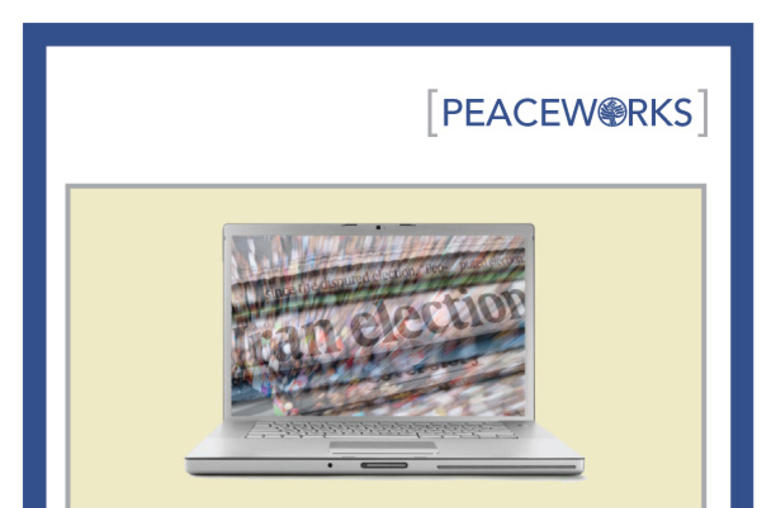
Blogs and Bullets: New Media in Contentious Politics
In this report from the United States Institute of Peace’s Centers of Innovation for Science, Technology, and Peacebuilding, and Media, Conflict, and Peacebuilding, a team of scholars from The George Washington University, in cooperation with scholars from Harvard University and Morningside Analytics, critically assesses both the “cyberutopian” and “cyberskeptic” perspectives on the impact of new media on political movements.
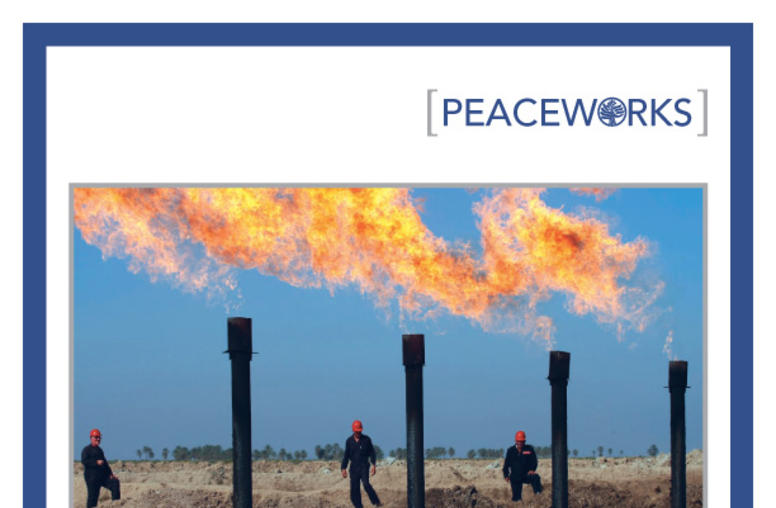
Iraq's Oil Politics
A new USIP report appraises the explosive politics of Iraq’s oil wealth and opportunities to address the conundrum.
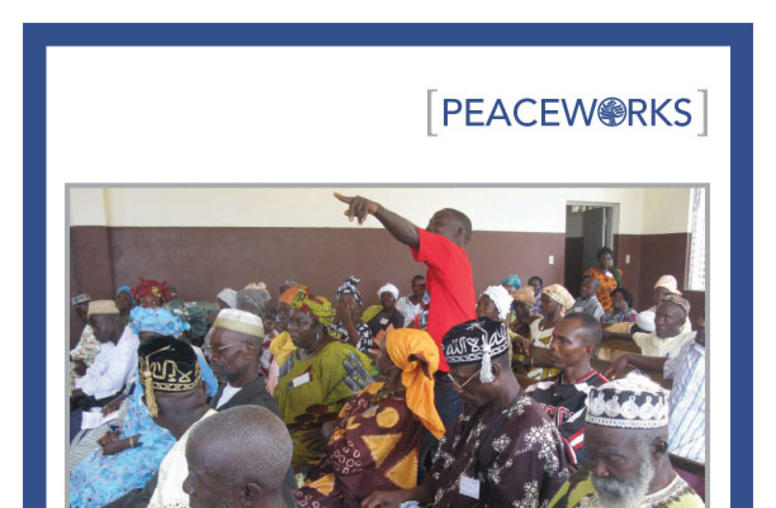
Looking for Justice: Liberian Experiences with and Perceptions of Local Justice Options
This report presents the research findings and analysis of ten months of field study as part of the United States Institute of Peace and George Washington University project titled "From Current Practices of Justice to Rule of Law: Policy Options for Liberia's First Post-Conflict Decade."
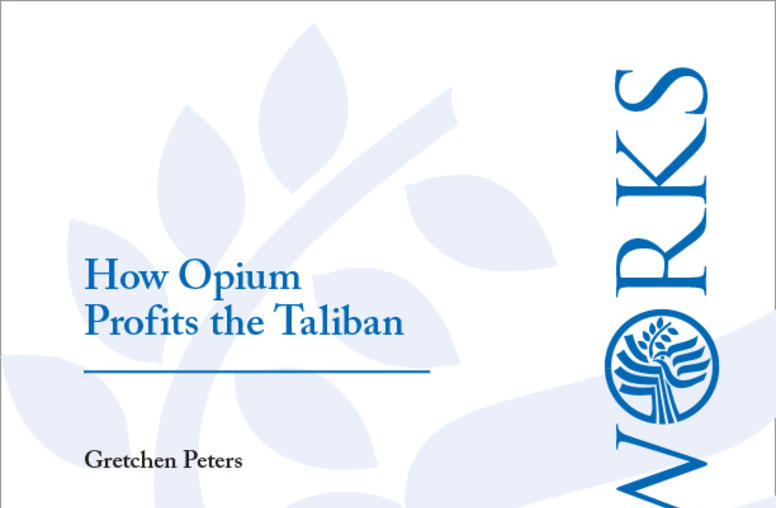
How Opium Profits the Taliban
In Afghanistan's poppy-rich south and southwest, a raging insurgency intersects a thriving opium trade. A new USIP report, How Opium Profits the Taliban, examines who are the main beneficiaries of the opium trade, how traffickers influence the Taliban insurgency as well as the politics of the region, and considers the extent to which narcotics are changing the nature of the insurgency itself.